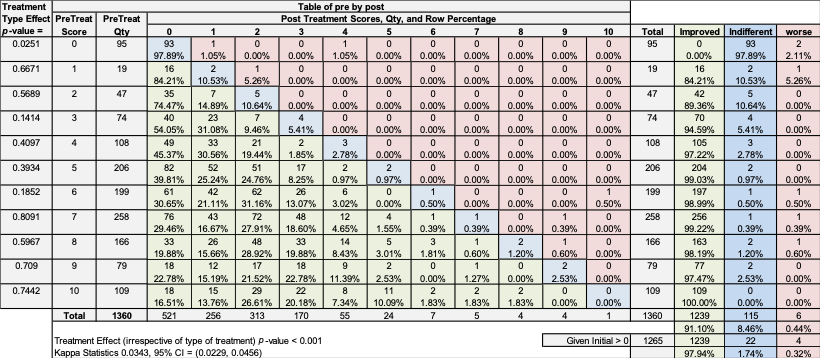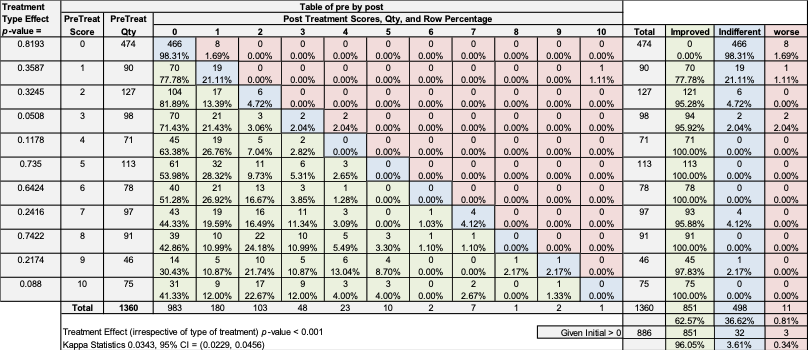Clinical Study: Hangover Cures & Treatment
By Jason Burke, M.D. and Darien Cohen, Ph.D.
Mobile Medical Bus IV Hydration
Hangovers are caused by physiological processes that occur in the blood, brain, and other key organs following alcohol consumption. Unlike the withdrawal symptoms from alcoholism—which are the result of systemic changes producing a physiological dependence on alcohol— hangovers are not indicative of a substance abuse problem. Instead, it reflects a transient condition that has been precipitated by the consumption of alcohol above a blood alcohol concentration (BAC) that has resulted in the physiological symptoms we typically describe as a hangover.
Although drinking to intoxication typically results in a hangover, the blood alcohol concentration necessary to produce feelings of queasiness, nausea, headache, dizziness, diarrhea, and other commonly-described symptoms differs widely among individuals. Furthermore, from having treated tens of thousands of hangovers, our medical staff has observed anecdotally that hangovers do not appear to be dependent on the absolute highest blood alcohol level obtained, but more to the overall amount of alcohol ingested.
Most people act in ways that are not healthful at times, like having a few too many mixed drinks at a celebratory event, and taking action to halt the consequences of these types of activities is an important way to avoid harming overall health status. Engaging in a hangover treatment protocol—like the ones offered by Mobile Medical Bus —can alleviate unwanted symptoms and allow people to return to normal functioning.
The Major Causes of Hangover
After an alcoholic drink is ingested, the alcohol (termed ethanol) is metabolized mainly in the liver using two enzymes, alcohol dehydrogenase (ADH) and aldehyde dehydrogenase (ALDH). One of the byproducts of these enzymes is Acetaldehyde (ACE) which, according to the National Institute on Alcohol Abuse and Alcoholism, is a toxic byproduct that, albeit short-lived before excretion, is a recognized carcinogen.
The following physiological factors (in addition to dehydration) are the primary contributors to hangovers: 1) acetaldehyde toxicity, 2) oxidative stress, 3) inflammation, 4) acute alcohol withdrawal, and 5) congeners (non-alcoholic substances in alcoholic beverages):
1. Acetaldehyde Toxicity
ACE build-up in the body following intensive drinking can cause inflammation, tissue damage, and oxidative stress. The amount of acetaldehyde in the body after consuming alcohol varies significantly between individuals, mainly due to genetic variations in the release of ADH and ALDH enzymes.
2. Oxidative Stress
Oxidative stress is defined as an imbalance between antioxidative defense and the production of free radicals. Free radicals contribute to oxidative stress—which can lead to lowered immunity. Oxidative stress not only contributes to hangover symptoms, but to liver cirrhosis.
3. Inflammation
Alcohol directly irritates the stomach and intestinal tract and can result in irritable bowel syndrome (characterized by diarrhea or constipation due to an inflamed colon). In turn, the elevated levels of inflammatory mediators remain in the brain for months.
4. Congeners
These non-alcoholic substances are byproducts of the fermentation and aging processes; they include methanol, acetone, and tannins. Congeners give alcoholic spirits their color—so liquor that is darker in color (e.g., whiskey and scotch) contains more congeners than vodka or gin. Whiskey is a good example of an alcoholic beverage with a high congener content, as the charred barrels that the whiskey is aged in release various congeners into the final product that significantly contributes to its color and flavor. The intensity of hangovers has been found to be greater after drinking alcohol with a high congener content versus those with lower levels of congeners.
Role of Dehydration and Electrolyte Depletion:
Alcohol consumption leads to dehydration through the suppression of an antidiuretic hormone (ADH), which assists the kidneys in maintaining total water balance within the body. The decrease in ADH activity results in a higher-than-normal excretion of urine by the kidneys. Although urine is mostly water, it also contains electrolytes (e.g., potassium, sodium, and chloride). Blood potassium level is related to proper heart function, and a low potassium level (termed hypokalemia) due to dehydration can result in cardiac rhythm disorders. As a consequence, dehydration and electrolyte imbalance require intervention during a hangover so that optimal water and electrolyte levels are restored.
Mobile Medical Bus Hangover Treatments and Research Center
Mobile Medical Bus IV Hydration, founded in 2012 by board-certified anesthesiologist Jason Burke, MD, is a medical clinic based in Las Vegas, NV that is dedicated to the diagnosis and treatment hangovers. Under the direction of Darien Cohen, Ph.D., Director of Operations, the professionals at Mobile Medical Bus have successfully treated tens of thousands of hangover patients, and 99% have reported a significant reduction in their hangover symptoms. For this study, the treatment protocols are tailored to three (3) pre-defined hangover level (ranging from mild to severe) as follows:
1) “Redemption” (used in mild cases)
2) “Salvation” (used in moderate cases)
3) “Rapture” (used in severe cases).
The treatment regimens are tailored to meet the unique needs of the individual patient. While the three basic treatment protocols include IV hydration and targeted vitamin supplementation, a non-IV treatment regimen and injectable B-12 vitamins are also available. For more information, please see the Mobile Medical Bus website, or contact Mobile Medical Bus directly by phone or email.
The three treatment protocols are described as follows:
1. Redemption (with standard IV hydration of 750 ml):
Includes IV hydration, IV vitamins, antioxidants, and choice of either nausea or headache medication. (this treatment has been discontinued since the completion of this study.)
2. Salvation (with standard IV hydration of 750 ml):
Includes IV hydration, IV vitamins, antioxidants, amino acid cocktail, headache medication, and nausea medication.
3. Rapture (with standard IV hydration of 1,000 ml):
Includes IV hydration, IV vitamins, antioxidants, amino acid cocktail, headache medication, nausea medication, injectable Vitamin B, and oxygen.
4. Eternity (with standard IV hydration of 1,250 ml):
Includes IV hydration, IV vitamins, antioxidants, amino acid cocktail, headache medication, nausea medication, injectable Vitamin B-Complex, and oxygen. (This is our newest treatment for severe hangovers and was not available or included for the purposes of this study.)
Preliminary Results of Work at Moblie Medical Bus
Before and after the IV treatments at Mobile Medical Bus, blood pressure and heart rate are assessed along with patients’ subjective scoring for their hangover (1. overall hangover; 2. nausea; and 3. Headache) using a scale from 0 – 10 with 0 being normal and 10 being the worst the patient could possibly feel.
Statistical analysis was performed on a randomized set of 1,000+ patients and the data showed:
- Improvement in overall hangover scores (97.94%) (Table 1)
- Improvement in nausea scores (96.06%) (Table 2)
- Improvement in headache scores (96.48%) (Table 3).
- Mean systolic blood pressure and heart rate were statistically lower after treatment (figure 1).
Approximately 80% of patients we treated reported an “epic” hangover with an overall pre-treatment hangover score of 10 resulted in a post-treatment score of 3 or less. That is a considerable improvement in 45 minutes. Zero percent of these “epic” hangover patients saw no improvement. As the pre-treatment hangover scores go down, a greater percentage of patients saw a reduction to a post-treatment score of zero or 1. If one looks at a pre-treatment hangover score of 5, over 50% of patients were a zero or 1 after treatment.

Table 1: Overall hangover scores (green = improved, blue = no change, pink = worse)

Table 2: Nausea scores. (green = improved, blue = no change, pink = worse)

Table 3: Headache scores. (green = improved, blue = no change, pink = worse)

Figure 1: A) Heart rate pre and post treatment. B) Systolic blood pressure pre and post treatment (blue = pre-treatment; pink = post-treatment)
Summary of IV Hangover Treatment Results
Below is the “executive summary” of a statistical analysis of the study results. This analysis was performed by Dr. Cohen and an independent statistician.
There was a statistically significant improvement observed in this retrospective study (99% of those with some initial distress on a factor), showing at least some improvement on each of the categorical scales (Headache, Nausea, and overall hangover score (OVS)). No gender or age-specific responses were observed in this study, with both genders and all ages showings similar responses to the treatment intervention. Our analysis of how height, weight, and BMI affect hangover scoring found that these factors did not affect treatment outcome. There is a slight but statistically significant trend in the reduction of the population mean heart rate and blood pressure after treatment. This positive treatment effect is most consistent and pronounced in treatment 2 (Salvation). Also, Sat 02 results improve after treatment and this effect is seen equally in all treatment types.” A p-value of less than 0.05 is considered statistically significant.
This analysis was performed without the benefit of a negative control, however, it is unlikely that a patient who is not suffering from a headache or nausea would be able to report a hangover score above zero thereby complicating the interpretation of the subjective evaluation. It would be very useful in demonstrating that the treatment is innocuous to a healthy individual. This is especially true for evaluating the impacts of intravenous hangover treatments on changes in patient blood pressure as these measurements are not subjective. Additionally, this study did not control for the amount or types of alcohol that the participants consumed prior to treatment. A more controlled study would allow us to determine the impacts of many more factors (e.g. blood alcohol, dehydration level, hormone level, etc.) on hangover development and severity in addition to the treatment options for resolving the condition in the most efficacious manner.
These preliminary results are very intriguing and show the promise of how an innovative medical treatment to a persistent (and almost universal) problem can be greatly improved. This is the first report of the statistically relevant reduction of hangover symptoms. In future studies, we plan to control for the above factors as we continue to advance our understanding of veisalgia and how to diagnose and treat this condition with reduced treatment times and to one day prevent hangovers completely.
Our discussion has centered on the main contributors to hangovers, and why our approach to treating them has been so successful. From our experience of treating tens of thousands of hangover patients, we have developed the motto:
“It is much easier to prevent hangovers than to cure one”.
Future Mobile Medical Bus projects will focus on blood analysis of hangover patients, as well as the efficacy of oral administration of vitamins and antioxidants on the prevention of veisalgia. Since the completion of this study, we have introduced a new treatment for epic hangovers. This treatment is called Eternity and has been found to be the newest standard in treating epic hangovers.

Best Liver Support Pills
The best liver support pills are going to have vitamins, minerals, antioxidants, and supplements that support your body’s natural inflammation response. All of these ingredients are important to support your body’s natural metabolism. At Mobile Medical Bus, we only use high-grade ingredients and never add sugar.

